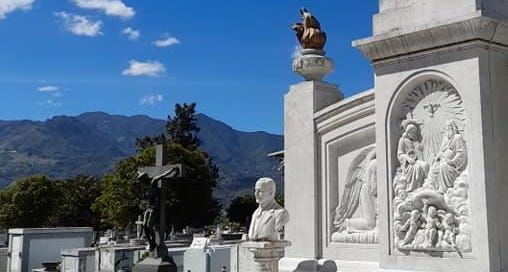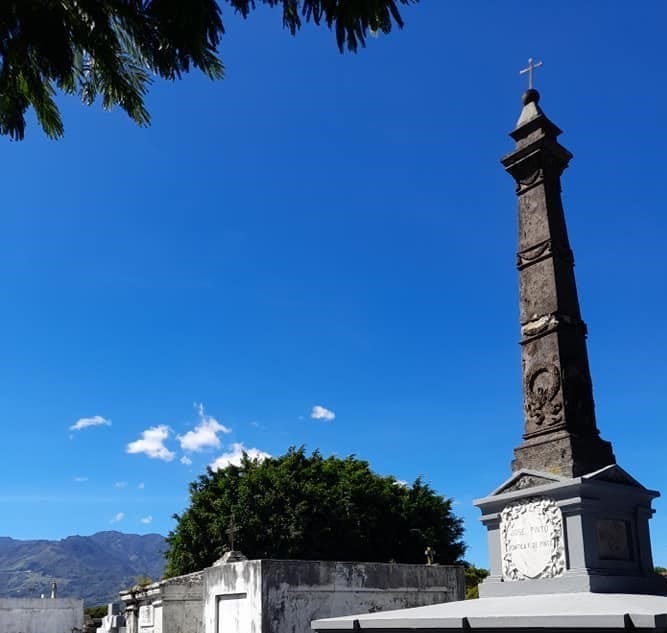If you have been following The Chemist of Catania series so far (I mean the books, not this substack) then you may like to know that the next instalment is in the very last stages of production, undergoing its third proofread. It is entitled The Gravedigger of Bronte. You may have gathered that the entire gimmick of the series is that it is written in a style that tries to convey a translation from Italian. The title in Italian would be Il Becchino di Bronte. Becchino is a word often applied to undertakers, who are held in scant regard in Italy, and one of the lead characters is Pio Forcella, an undertaker. Pio or Piuccio was the name of the first Mafioso I ever met. Forcella is the name of a street in Naples, which caught my interest, as it is one of the former strongholds of the Camorra in the centre of the city.
If you live a good legal life, if you work hard, you may well find that this is not enough to get on in life; you may well find that the doors that should open for you simply don’t, because you do not know the right people, you do not have the respect that your natural talents deserve. (Is this true in real life? It may well be. It is true in the world of the book.) Piuccio works hard, but he is not getting on: his wife nags him about his lack of worldly success, there is the coming expense of a second child, and he knows that is he is to rise, if he is to gain a place in the sun, then he needs the help of don Calogero. Of course, that is risky, it is dangerous, but does he have a choice? His wife does not respect him, and people do not respect him, and this intolerable situation drives him to approach don Traiano, Calogero’s gatekeeper. What else is a man to do?
This is the theme of the book: how ambition drives people, and how it drives them to take risks, and how intolerable it is to accept one’s lowly status.
This is quite a good theme, in my humble opinion. One of the things drummed into me and my fellow seminarians in Rome, many years ago, was the need to be humble. As young clerics we were not to question our superiors and not to challenge their decisions, however stupid those decisions, many of which affected us personally, seemed. Lack of humility, pride, was the ultimate sin. So was ambition, the desire to rise in the ranks of the Church - but so much was humility drummed into us, that ambition hardly crossed our minds.
Now there is something in this. The very greatest Catholics have all been very humble: Therese of Lisieux, Mother Teresa, Saint Bernadette, Saint Francis, all spring to mind. The very worst were ambitious place-seekers such as Pope Alexander VI, Rodrigo Borgia, and Cardinal Wolsey and other Renaissance princes of the Church. Clearly ambition in clerics is a very major sin. But for the laity? What if you are in the position of Pio Forcella, and other characters in the book? Can you really go through life knowing that you are excluded from not just the top table, but any table in at the feast? That you are meant to be humble, and content with your lowly position, and not to question it? The temptation to have a helping hand in business, with the attendant respect and wealth that comes from it, must be impossible to resist.
This might be a hard temptation for most men to resist, but it must be well nigh impossible for a Sicilian who lives in a land where the poor have always been excluded, where the native people have always been made outsiders in their own island. That at least is the Sicilian myth. While no one believes that modern Sicilians still feel resentment for what the Carthaginians or Romans did to their ancestors, nevertheless, there is something to this myth. Until after the Second World war, the Sicilians were the dispossessed of the earth, either landless peasants reliant on intermittent seasonal labour, or else living in towns and cities which provided scant employment and dreadful living conditions. Land reform and industrialisation only really started after 1945. Before then life was extremely hard for the many, though very comfortable for the land-owning aristocracy.
Change came with the Christian Democrat governments of Alcide de Gasperi and his successors, particularly after a parliamentary investigation into poverty which reported in 1952, which spurred huge investment in Sicily. This was good, but things went wrong with the growing clientelism that took over the Christian Democrat party in the 1960’s, when the government contracts became the objects of fierce competition amongst warring factions in the party. Once again it was the rulers dividing the spoils, and the ruled being excluded from the feast. To be Sicilian, then, is to feel excluded, and, in the world of the book, to look to the Mafia as a way of righting the balance, of obtaining what is rightfully yours, perhaps, or at least a way of beating the lords of misrule at their own game.
PS. The Kindle edition is already out. The paperback is on its way. Here is a link to the Kindle.






The absence of respect. An excellent theme to write about. Can a parish priest help a man change his mindset so that living with low respect from others is more tolerable, less intolerable. Can a man learn to be indifferent to other people's opinion of him - buoyed only by his own self respect and faith. Should a priest even try to do that?